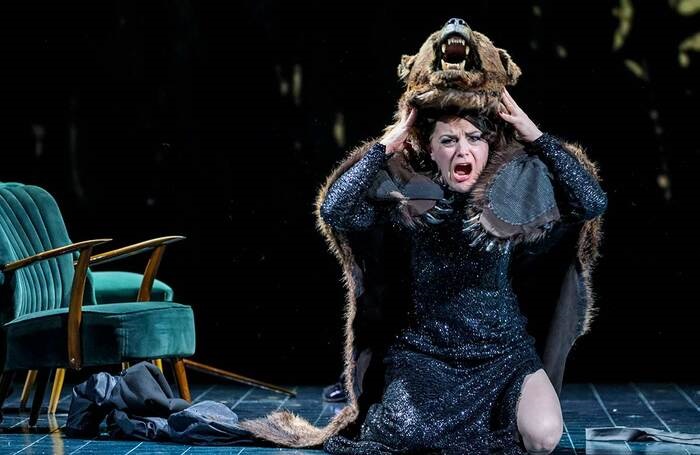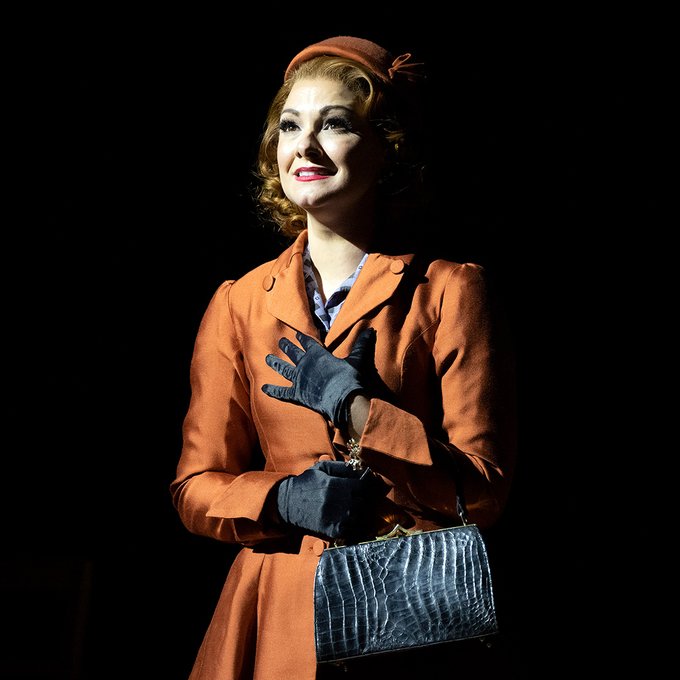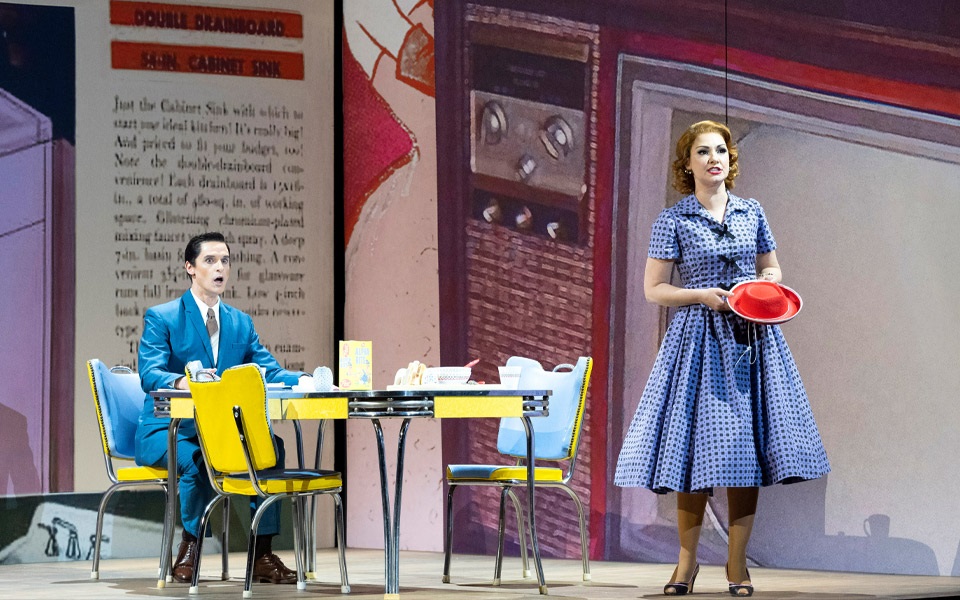
Opera North in Alcina, Leeds Grand Theatre, further performances tonight and Thursday, 7pm, then on tour until March 24. Leeds box office: operanorth.co.uk/whats-on/alcina. Also live-streamed on www.operavision.eu
HANDEL’S operatic audiences must have had stamina. Alcina, his most popular success at the box-office, clocks in at over three and a half hours, when given complete.
Nowadays we seem unable to treat Handel’s operas with the same reverence we extend to the parts of Wagner’s Ring, by giving them in full. Hence in Tim Albery’s new production – Opera North’s first attempt at Alcina – the dance music is omitted and the role of Oberto excised altogether. Both contain some top-class Handel.
Covid constraints are doubtless to blame, although not for the conversion of Melisso from bass to mezzo – henceforward Melissa – on the grounds that this was how she originally appeared in Ariosto’s Orlando Furioso, two removes distant from the anonymous libretto Handel actually preferred.
Other considerations apart, the presence of a bass helps to provide a better balance between upper and lower voices.
There was one other constraint. The general manager was at pains to point out in his introductory note that this was the company’s first sustainable production, en route to full Carbon Neutrality (his capitals) by 2030. This was not so much virtue-signalling as a smokescreen smudging the reality that décor and costumes would be ultra-low budget.
So Alcina’s island was experienced only via a video cooked up by Ian William Galloway. It mainly provided a jungle backdrop to the ten armchairs that were virtually the only props in Hannah Clark’s set, barring a bear rug that Alcina briefly ‘wore’, as if joining the ex-suitors she had turned into animals.
That was virtually the only magic on display. There was no sign of her palace. Clark’s costumes, recycled of course, were more appropriate to a 1950s’ nightclub than a desert island, a deliberate excursion into vintage. All of which suited the budget and was doubtless easy to believe if you had worked through it in rehearsal, less credible for someone encountering Alcina for the first time.
These reservations apart, Albery’s particular achievement is to fill the arias with plenty of action, even bringing on stage characters who are merely in the minds of the singers rather than intended to be present. So, there is never a dull moment.
Máire Flavin’s handling of the title role is a work in progress and promises much. But at the moment she has not quite assumed its full potential. The notes are all there and she looks determined enough, but there is not much emotion behind them and her affair with Ruggiero is short of electricity.
Her Act 2 scena, where she fights conflicting emotions, carries theatrical conviction but not the musical punch to match.
Ruggiero is played by the American countertenor Patrick Terry, making his company debut. His best effort is his departure aria, ‘Verdi prati’, where he relaxes into its cantabile line. Elsewhere, there are too many occasions where he tries to produce more sound than suits his voice and pushes himself out of tune. He is persuasive as Alcina’s puppy-dog, but less so thereafter.
The Norwegian mezzo Mari Askvik, another company debutant, delivers the purest Handelian style as Bradamente, the fiancée of Ruggiero who spends much of the show disguised as her brother. Her height and blonde bob reinforce this impression and her coloratura is splendidly clean.
Fflur Wyn is marvellously fiery as Morgana, Alcina’s sister, and tears into her big aria, ‘Tornami a vagheggiar’, with relish. Her on-off affair with Oronte, sung by tenor Nick Pritchard, is the crowning glory of Act 2, underlining what we have been missing from the other principals. Pritchard matches her fervour to a tee. Claire Pascoe makes the most of the shadowy role of Melissa, another enchantress.
Laurence Cummings is stylish in his conducting of a slightly thinned-down orchestra from the harpsichord, with two theorbos adding extra spice. This is a show that will probably mature as the run progresses, but presently does not compensate for its lack of magic.
Review by Martin Dreyer


